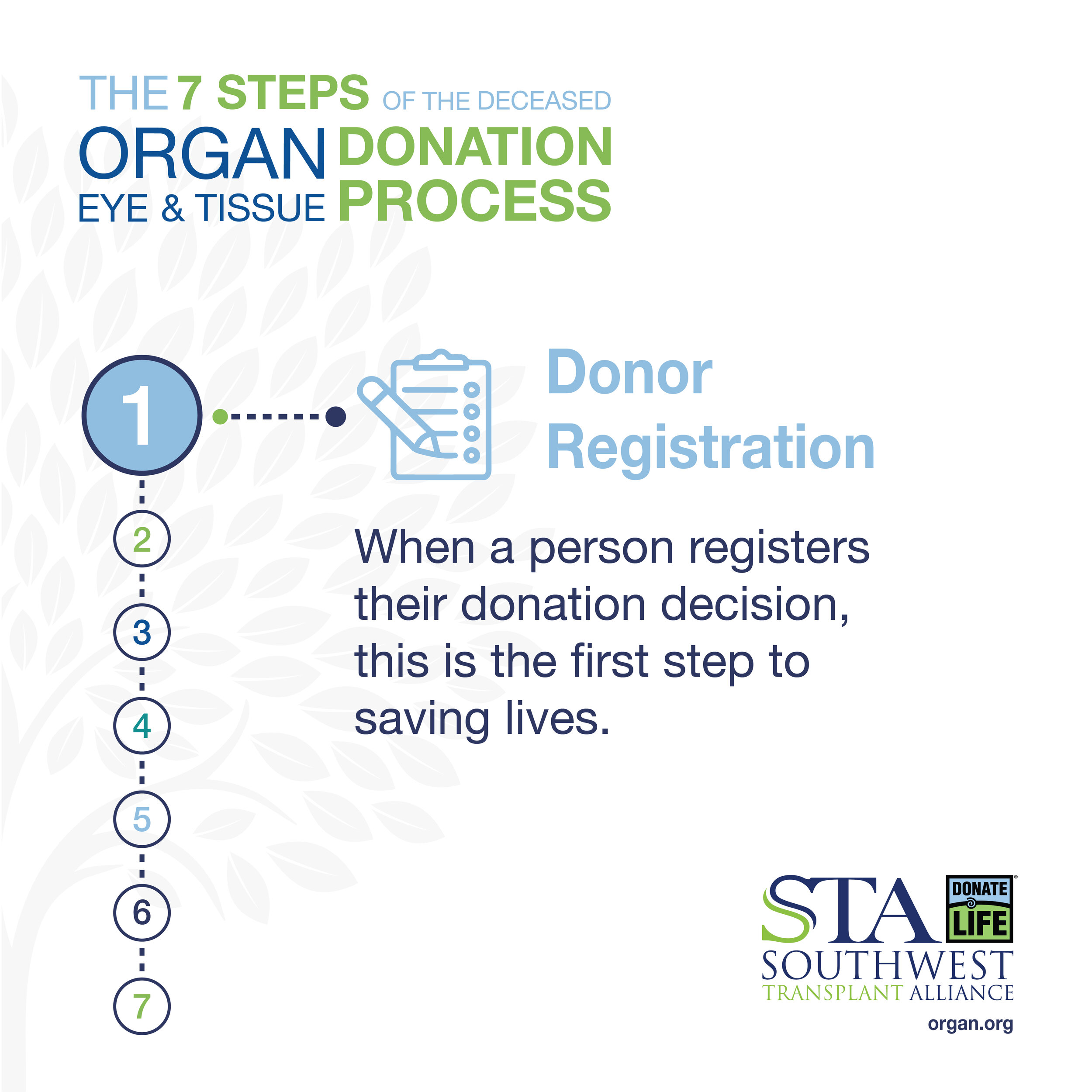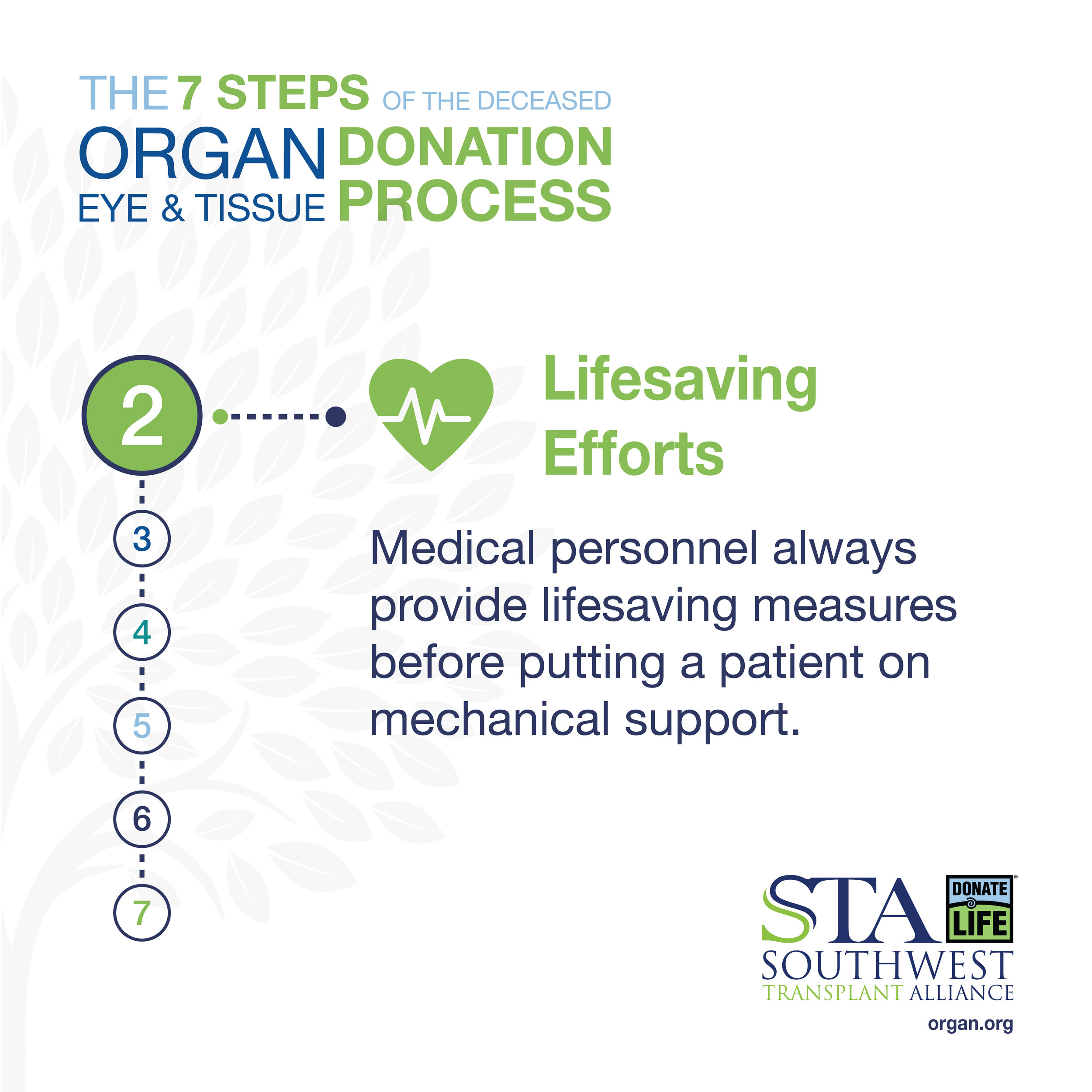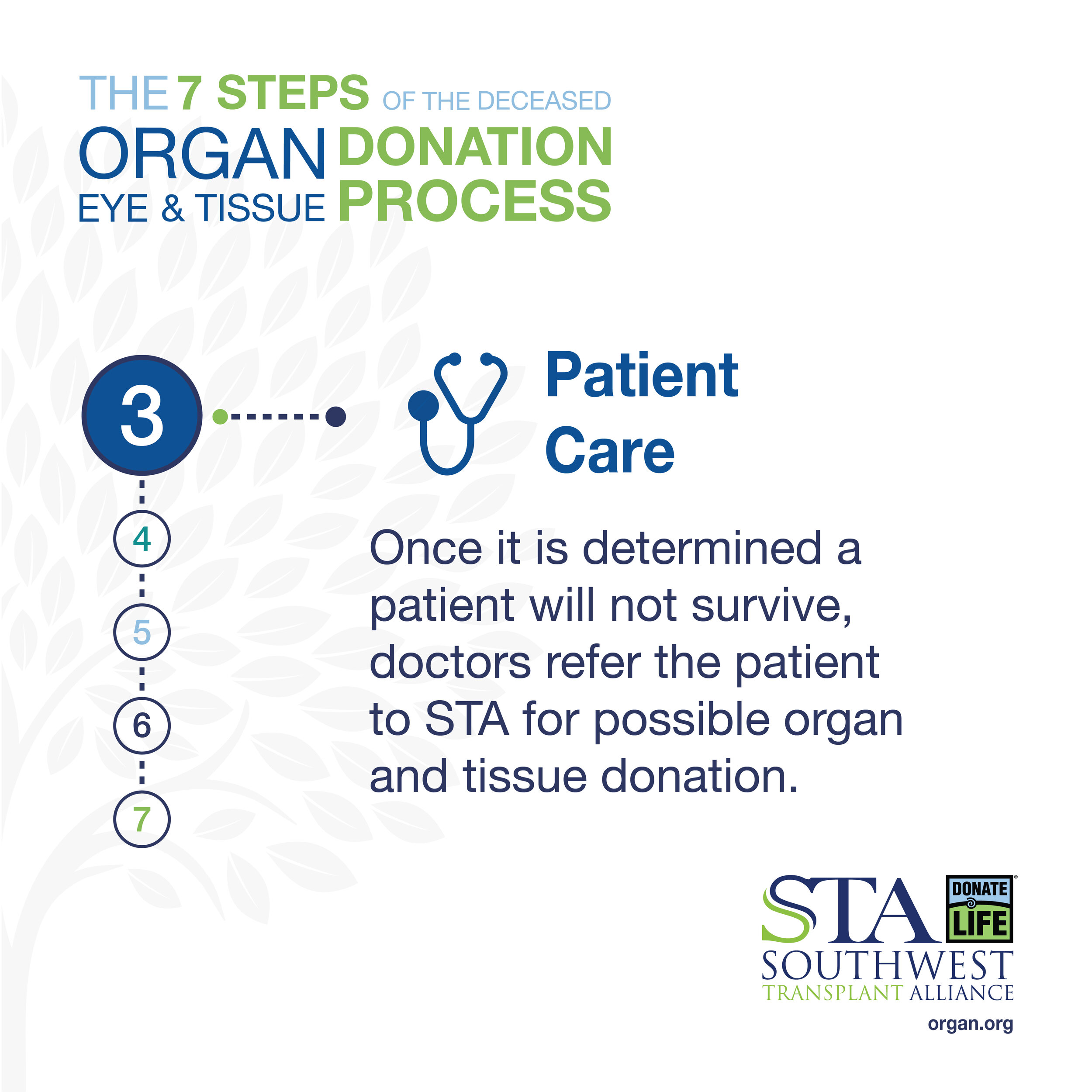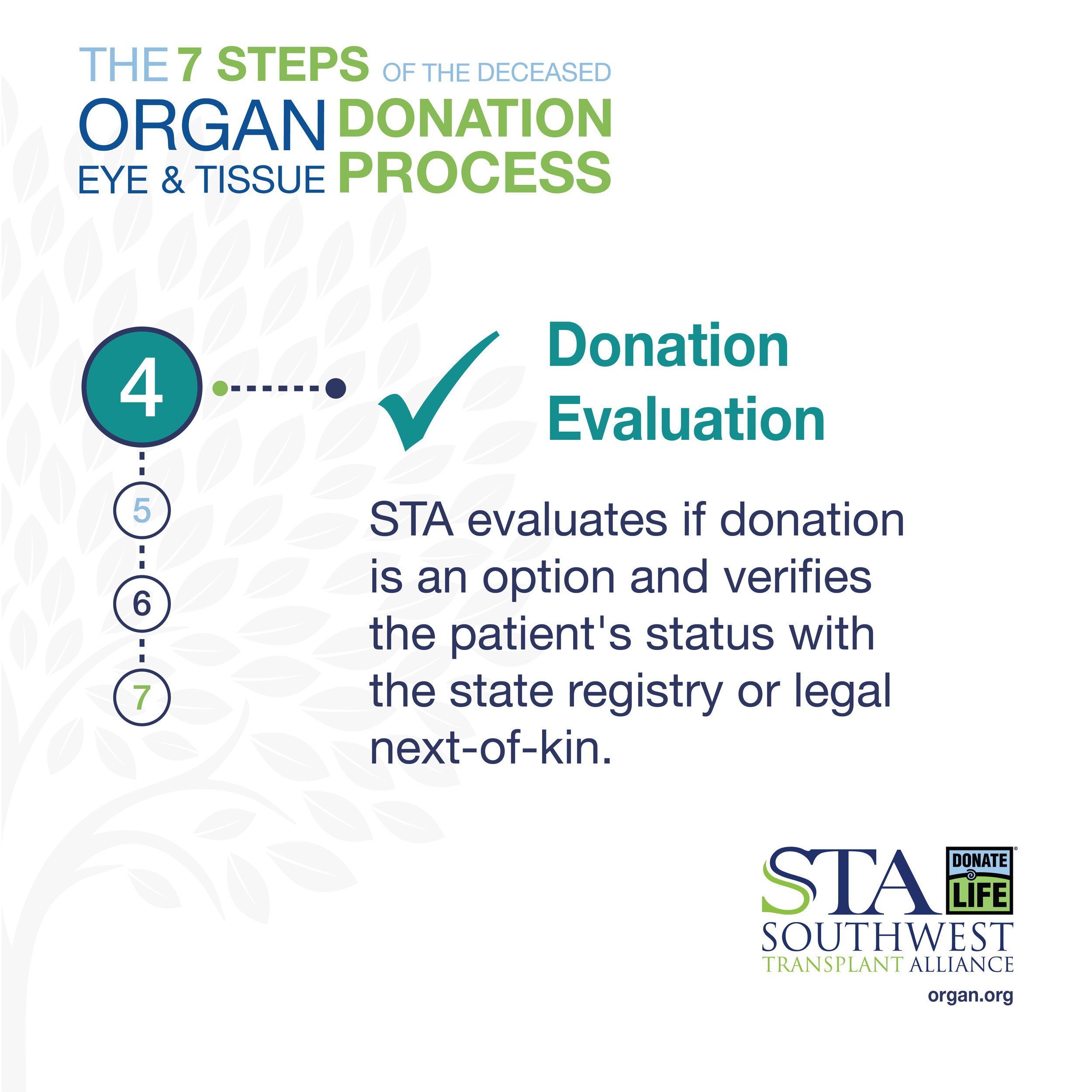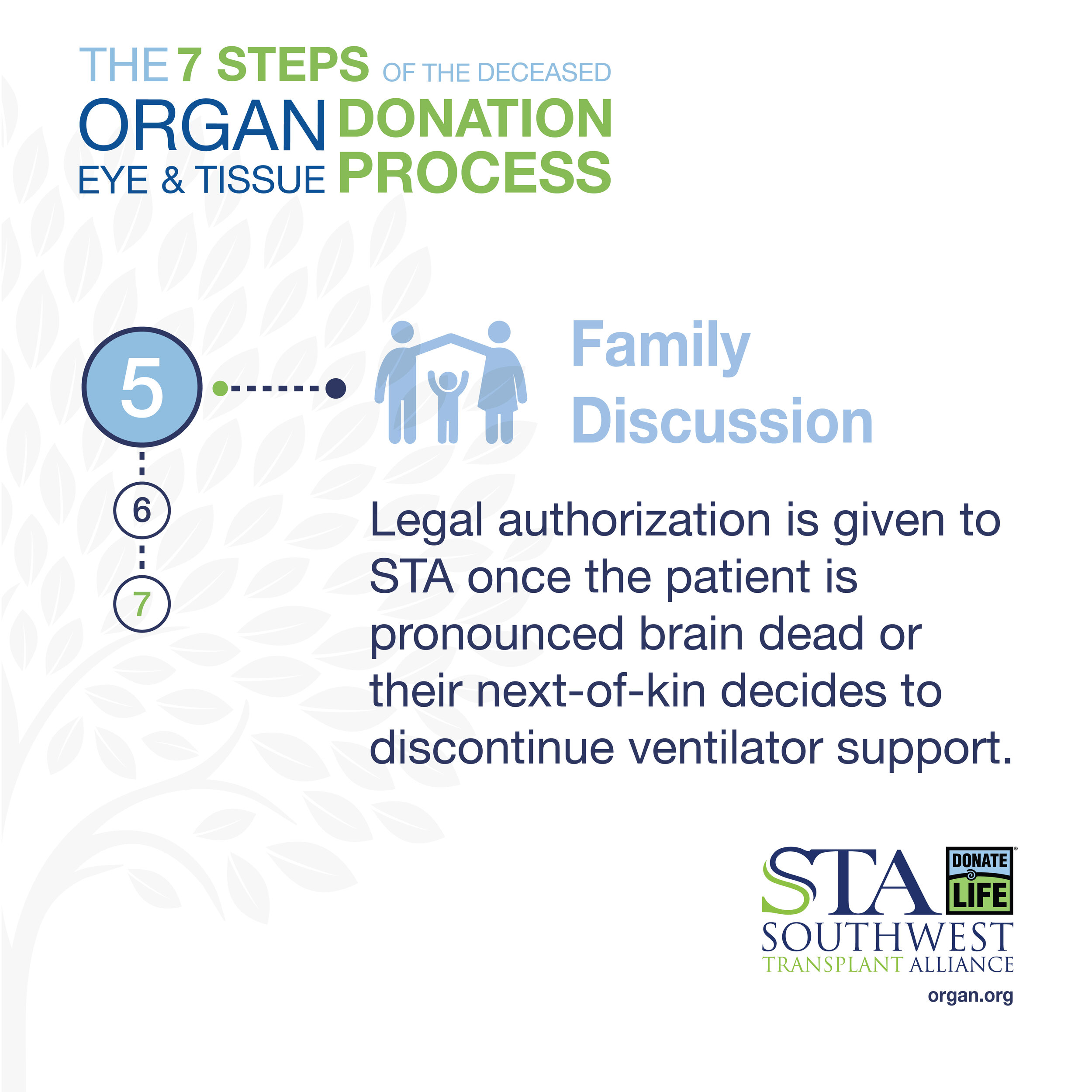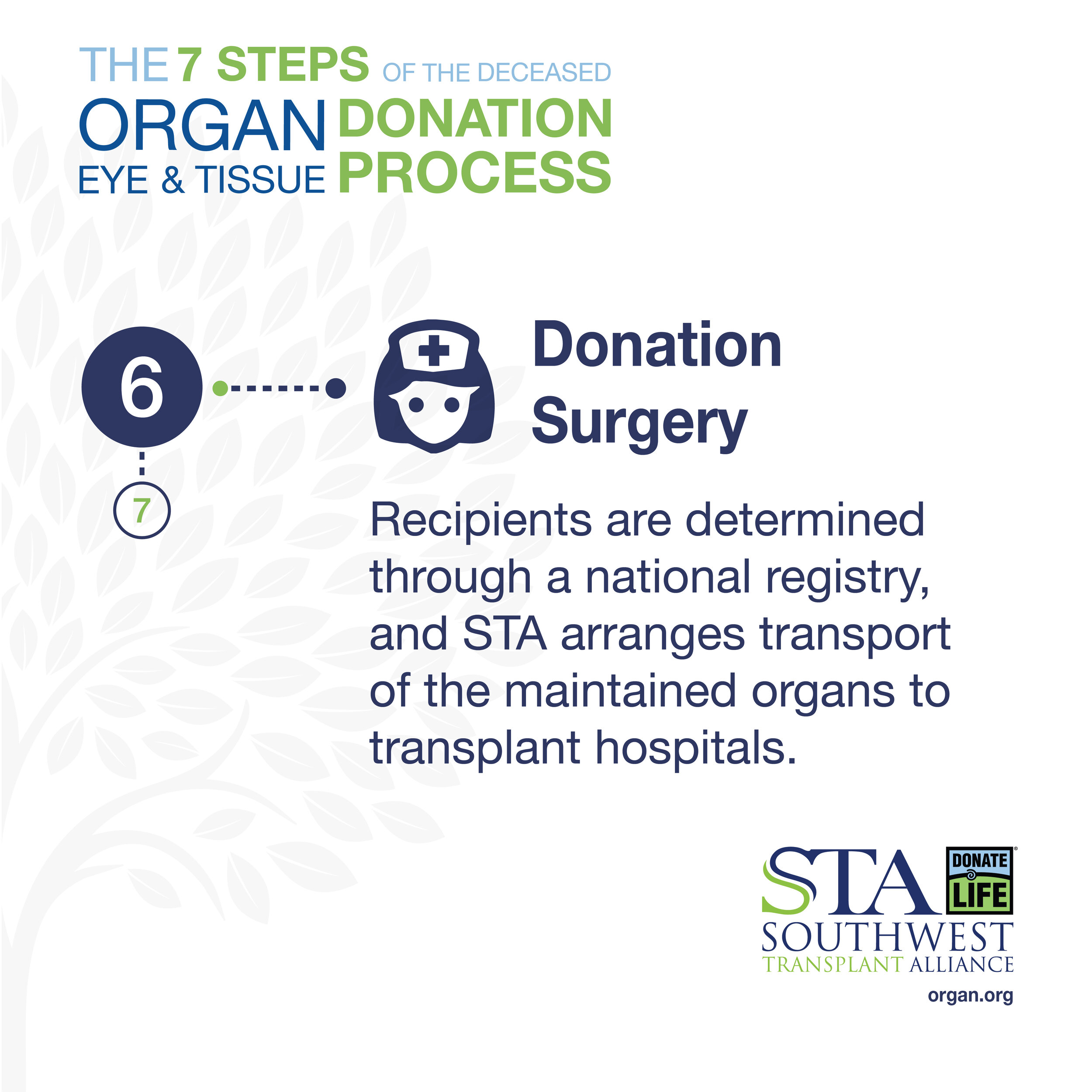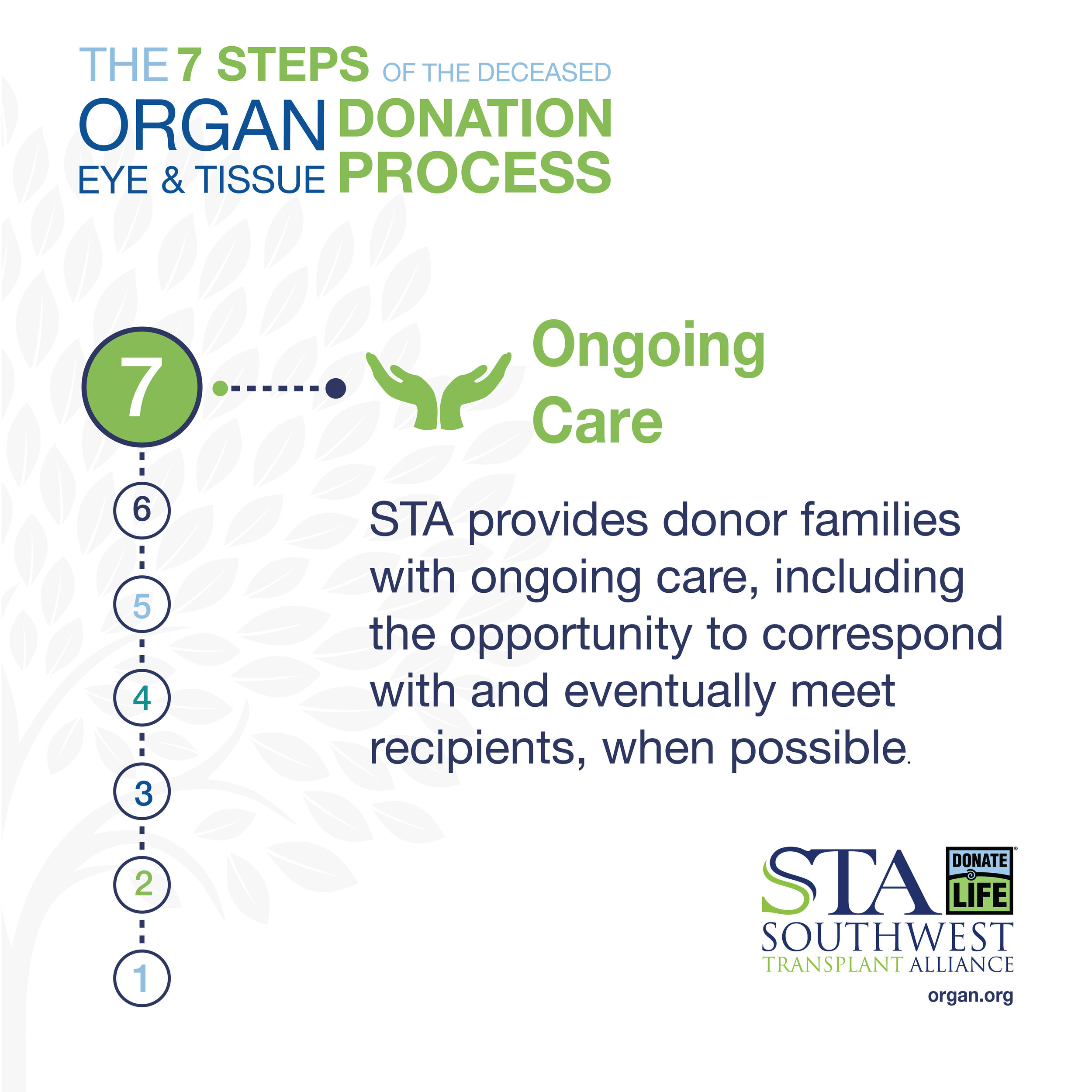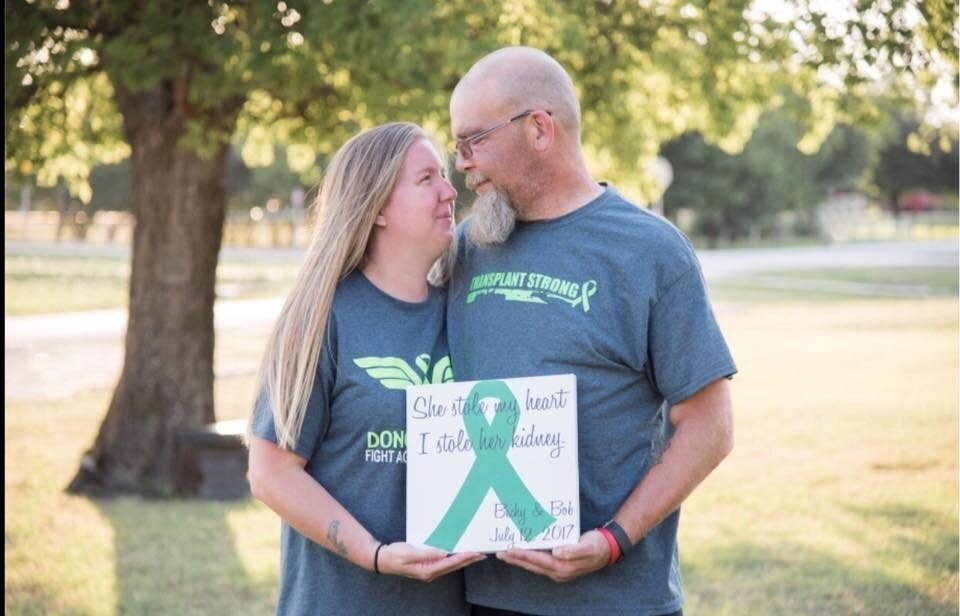
The Donation Process
More than 100,000 men, women and children in the United States, including more than 10,000 in Texas, need an organ transplant to live.
While the number of registered donors is steadily growing, we need more people to register — because the need still far outweighs the number of transplants available each year.
Every 8 minutes, another person is added to the transplant waiting list
On average, 13 people die each day waiting for an organ transplant
Resources
Download the STA Donation Process Guide (PDF)
Frequently Asked Questions About Donation (LINK)
Learn more about how registration works in Texas (LINK)
Read the stories of hope from those impacted by donation.
Living Donation
Thousands of transplants each year are made possible by living donors.
Living donors can donate an entire kidney or a portion of their liver or lung. In rare cases, living donors can donate a portion of their pancreas or intestine.
While STA does not facilitate living donation, those interested can learn more by contacting a transplant program in their area. Learn More >>
Rebekah and Bob Barbour of Dallas celebrate more time together after a kidney transplant saved Bob’s life. Rebekah donated her own kidney to Bob through a living transplant program in 2017.


